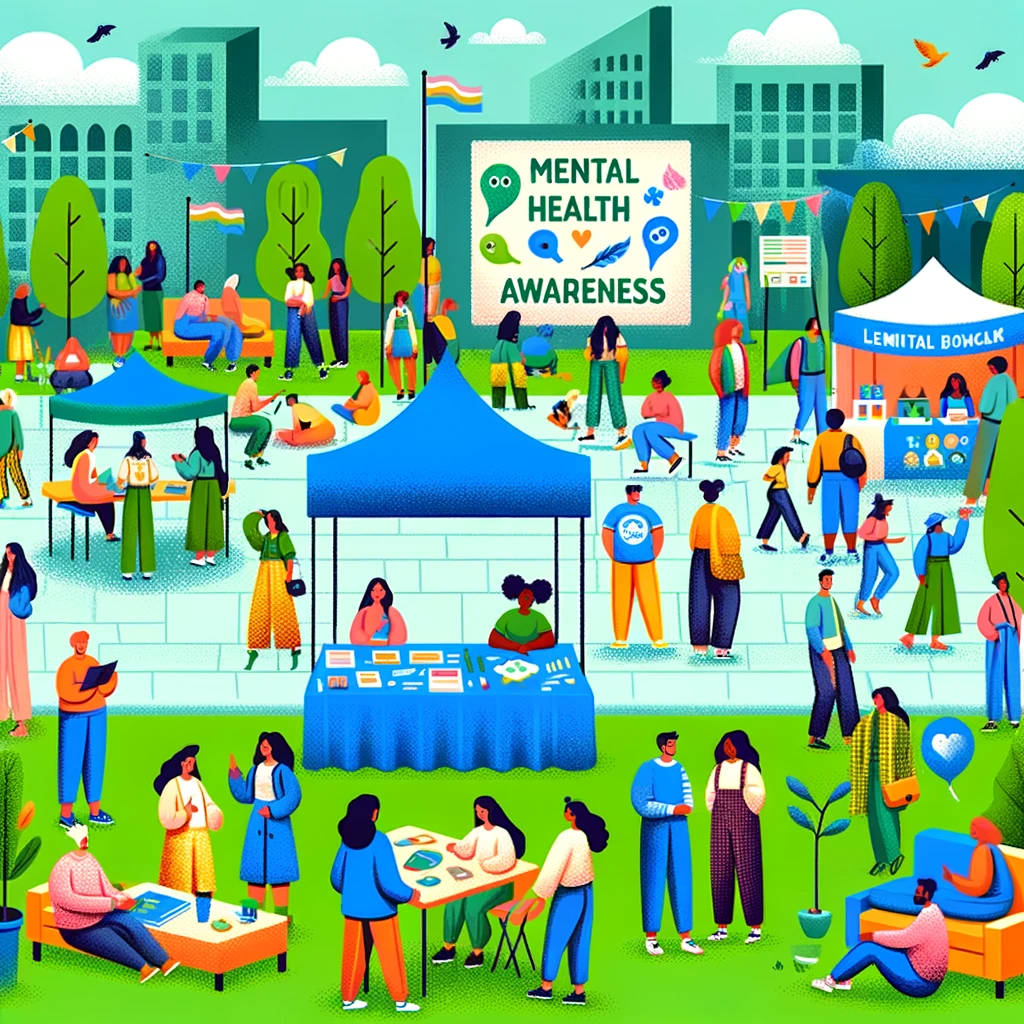What is Mental Health? 🔎

Mental Health, a crucial aspect of our well-being, often remains misunderstood and overlooked. In this comprehensive exploration, we delve into the challenges and solutions within America’s mental health landscape. Let’s dive in and take a closer look at these issues.
It encompasses our emotional, mental, and social well-being, profoundly impacting how we think, feel, and act. It’s vital through all life stages, influencing our stress management, relationships, and decision-making. Understanding mental health’s importance is the first step in addressing its challenges.
The Growing Concern in America 🇺🇸
In America, the significance of mental health is gaining traction. Our society’s mental health affects how we handle stress, form relationships, and make choices. Recognizing the balance and strength needed to maintain mental health is crucial in differentiating it from mental illness.
This is important throughout all stages of life, including childhood, adolescence, and adulthood. Maintaining good mental health involves finding balance, and strength, and effectively managing life’s challenges. However, it is a common misconception to associate mental illness with it.

The Role of Mental Health Clinicians and Facilities

In the US mental health practitioners play an indispensable role in addressing this crisis. These experts offer invaluable support, guiding individuals through mental health complexities. Clinics and outpatient services provide a sanctuary for those needing immediate or long-term care.
If you or someone you know is struggling, there are support services available 24/7 equipped to help all age groups.
Why It’s Important to Talk About Mental Health

Discussing mental health openly is vital for destigmatizing help-seeking behaviours. Sharing personal stories can offer comfort and raise awareness, as mental health professionals foster an environment where these conversations can thrive, affirming their parity with physical health.
Moving Forward – Awareness & Action
Making people more aware and allowing access to resources is crucial. Initiatives like Men’s Mental Health Awareness Month and increased accessibility to professionals and facilities are steps towards a future where mental wellness is prioritized.
In our progression, it is crucial to develop our understanding of the availability of resources for mental well-being. This is a complex matter that necessitates a comprehensive strategy, encompassing education, assistance, and treatment alternatives.
We can greatly help people dealing with challenges by promoting awareness through events, social media and in our daily interactions. Additionally, expanding access to mental health professionals and hospitals is another way to help.
Everybody should be doing this. , As a community, we can strive for a future where mental wellness is a top priority. It should not be merely a concern, but something we actively work towards.

Addressing Mental Illnesses Severity
Recognizing the uniqueness of each mental illness experience is insanely important. While some conditions require urgent attention, understanding the nuances of each disorder is key to providing empathetic care, particularly for men overcoming societal biases.
Many men struggle to seek help for these problems due to societal biases. Specialized facilities and services cater to these specific needs, offering attentive and empathetic care.

Importance of Timely Mental Health Care

It cannot be emphasized enough, the significance of immediate action. Whether that’s detecting or treating mental illnesses in their early stages.
Prompt mental health care can significantly alter the course of someone’s life. Professionals and facilities providing urgent care play a life-saving role, making it a priority across all life stages, with accessible, quality treatment being paramount.
Why it matters?

Health services are crucial for community well-being. They provide support through inpatient and outpatient care, crafting personalized treatment plans and offering continuous support for those transitioning from hospital care or requiring regular therapy.
Understanding Major Types of Anxiety Disorders

Anxiety disorders, often misunderstood, come in various forms, each with unique challenges. Recognizing the major types, such as Generalized Anxiety Disorder and Panic Disorder, is essential for tailored treatment and management.
Prevalent and impactful, anxiety disorders, manifest in several forms. Understanding disorders like Generalized Anxiety Disorder and Social Anxiety Disorder is vital for effective symptom management.
To deepen our understanding of these conditions, it’s crucial to recognize the early signs and consult healthcare professionals during regular check-ups.
Generalized Anxiety Disorder (GAD) is when someone worries a lot. Panic Disorder is when someone suddenly feels terrified. Social Anxiety Disorder is when someone feels very anxious in social situations.
Specific Phobias are intense fears of certain things. Obsessive-Compulsive Disorder (OCD) is when someone has unwanted thoughts and does repetitive actions. Post-Traumatic Stress Disorder (PTSD) happens after a traumatic event.
Each type affects an individual differently and requires a tailored approach to treatment and management. Our website aims to provide as much helpful insights and information as we can. Our goal is to increase awareness and people’s understanding of these challenges to remove any stigma and help those in need.
Conclusion
The spectrum of mental health disorders includes conditions like Mood Disorders, Anxiety Disorders, and Psychotic Disorders. Each type presents distinct symptoms and challenges, necessitating a comprehensive understanding of effective treatment.
Join us in our mission to raise awareness and provide support for mental health issues. Visit AllAboutHealthToday.com for more insights and resources on managing and understanding these complex conditions.
Sign Up for our weekly newsletter!









Comments are closed.